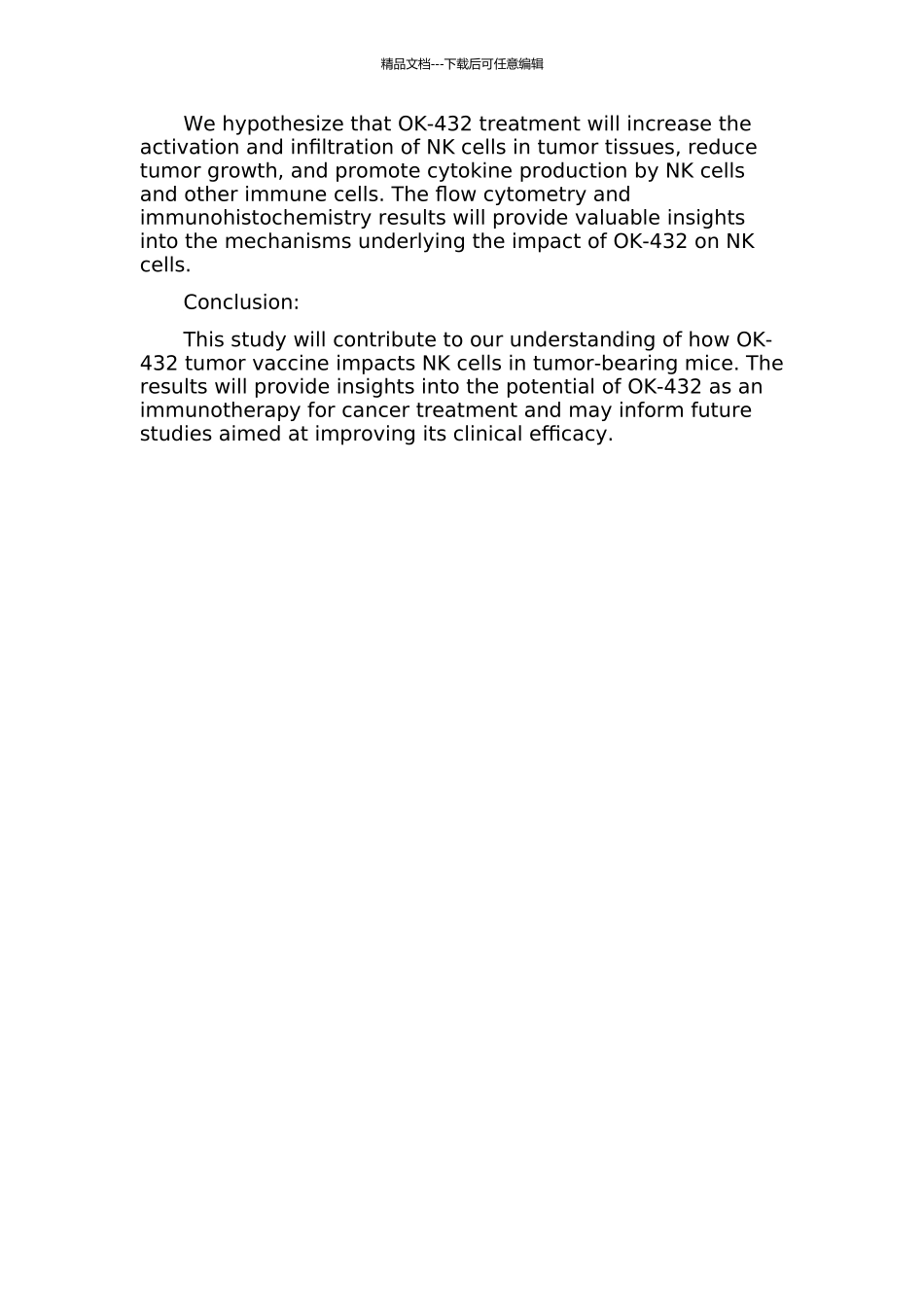精品文档---下载后可任意编辑OK--432 肿瘤疫苗对荷瘤小鼠 NK 细胞的影响的开题报告Title: The Impact of OK-432 Tumor Vaccine on NK Cells in Tumor-Bearing MiceIntroduction:Cancer is a major health concern worldwide, and despite advancements in treatment, it remains a leading cause of mortality. Immunotherapy has emerged as a promising approach to treating cancer, with the activation of natural killer (NK) cells being a crucial component of this strategy. OK-432 is a type of immunotherapy that is used to activate NK cells and stimulate an anti-tumor immune response. However, the impact of OK-432 on NK cells in tumor-bearing mice is not well understood.Purpose:The purpose of this study is to investigate the impact of OK-432 tumor vaccine on NK cells in tumor-bearing mice.Methods:C57BL/6 mice will be inoculated with B16 melanoma cells to create a tumor-bearing model. The mice will be randomly divided into two groups: a control group and an OK-432 treatment group. The control group will receive saline injections while the treatment group will receive OK-432 injections every three days for a total of six injections. After two weeks, all mice will be sacrificed and tumor tissues and spleens will be collected for analysis. The following methods will be used to assess the impact of OK-432 on NK cells:1) Flow cytometry to analyze the composition and activation of NK cells in the spleen2) Immunohistochemistry to assess the infiltration and localization of NK cells in tumor tissues3) ELISA to measure cytokine production by NK cells and other immune cellsExpected Results:精品文档---下载后可任意编辑We hypothesize that OK-432 treatment will increase the activation and infiltration of NK cells in tumor tissues, reduce tumor growth, and promote cytokine production by NK cells and other immune cells. The flow cytometry and immunohistochemistry results will provide valuable insights into the mechanisms underlying the impact of OK-432 on NK cells.Conclusion:This study will contribute to our understanding of how OK-432 tumor vaccine impacts NK cells in tumor-bearing mice. The results will provide insights into the potential of OK-432 as an immunotherapy for cancer treatment and may inform future studies aimed at improving its clinical efficacy.

